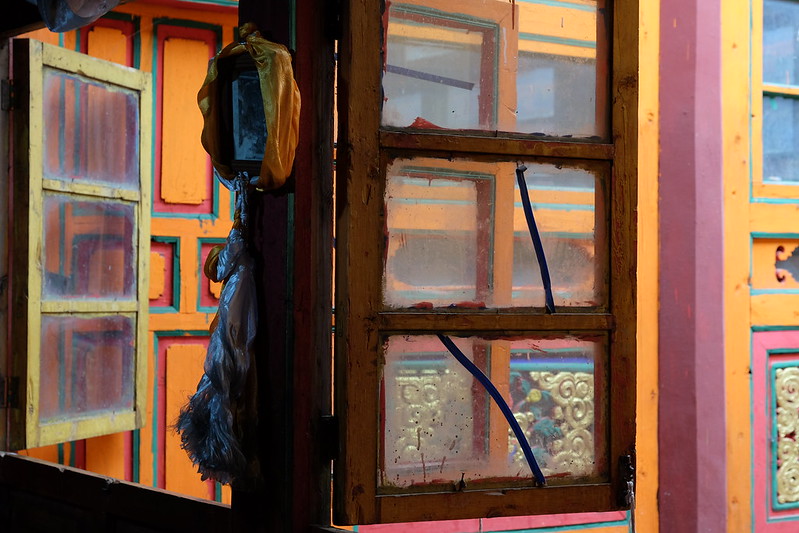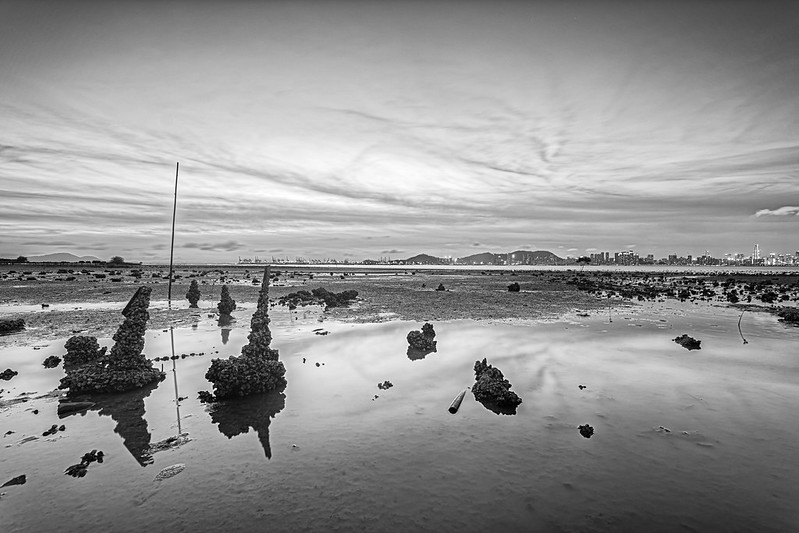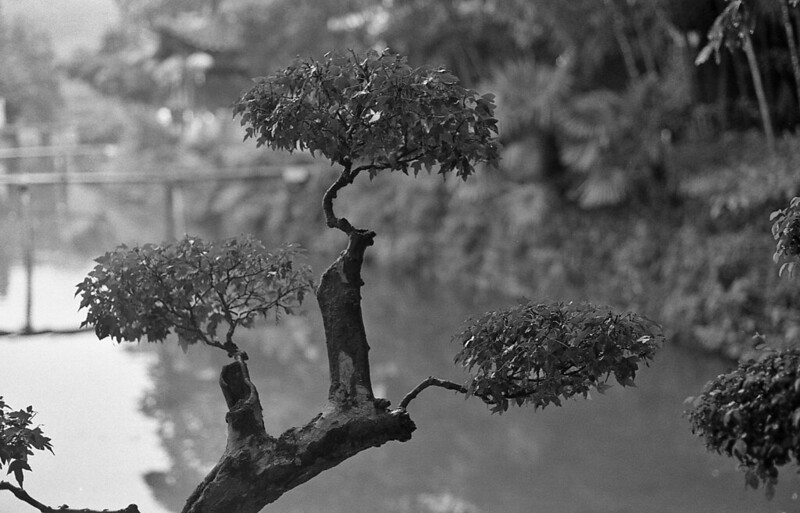As China is dealing with a new spike in coronavirus cases—reporting its highest new case count in three months on Wednesday—the vast majority of officially reported new cases are coming from the Xinjiang region. The capital city of Urumqi last week declared a “wartime state” over the initial spike, enacting additional lockdown measures in a region accustomed to tight security and high-tech surveillance.
In Xinjiang a broad and escalating crackdown on local Uyghur culture and religiosity has been underway since 2014, and arguments have recently been made that the aims of its policies fit the U.N. definition for genocide. Since at least 2017, the campaign has included a mass detention program that has held as many as two million Uyghurs. At The Guardian, Helen Davidson reports on fears that the new outbreak in Xinjiang could affect the internment camps:
Dr Anna Hayes, senior lecturer in politics and international relations at James Cook University in Australia, said the level of secrecy coupled with the potential for officials to cover up outbreaks, means any outbreak in the camps may never be made public.
“I doubt we would ever know,” she said. “But the fact there is community transmission, it’s only a matter of time, if it hasn’t happened already,” she said.
[…] Dr Michael Clarke, associate professor at the Australian National University’s national security college said the outbreak in two distant cities and high rates of community transmission suggested there were “multiple places throughout the region with potential hotspots”.
[…] “Another source of vector for the wider Uighur community is the Becoming Family program where you’re allocated a Han Chinese person … and you have to have the person in your house,” Hayes said, referring to a program of compulsory homestays where Communist party members spend about a week every two months in the home of Xinjiang residents. [Source]
Despite evidence of forced labor, political indoctrination, abuse, and death inside the camps, Chinese authorities continually deny allegations as a chorus of censure from foreign lawmakers, rights groups, academics, editorial boards, and celebrities continues to grow. Earlier this month, the U.S. announced Magnitsky sanctions on top CCP officials, and the International Criminal Court began considering a case against Beijing for crimes against humanity. Days later, China’s ambassador to the U.K. issued a lengthy and spirited denial of the situation in Xinjiang while being shown footage of blindfolded and bound prisoners being led to trains.
Last week, France renewed its criticism of Beijing over the treatment of Uyghurs and called for rights observers to be allowed into Xinjiang, and the Trump administration announced sanctions on 11 companies alleged to have utilized the forced labor of Uyghur detainees. At Reuters, Amber Milne reports on a coalition of over 180 civil society organizations’ petition for popular brands to stop sourcing cotton products from Xinjiang over the “grave risk” that forced labor was involved:
More than 180 organisations urged brands from Adidas to Amazon.com Inc. to end sourcing of cotton and clothing from the region and cut ties with any suppliers in China that benefit from the forced labour of the ethnic Uyghurs and other Muslim groups.
[…] While most fashion brands do not source from factories in Xinjiang, many of their supply chains are likely to be tainted by cotton picked by Uyghurs that is exported across China and used by other suppliers, the rights groups said in a letter.
More than 80% of China’s cotton comes from northwestern Xinjiang, which is home to about 11 million Uyghurs.
“Brands and retailers recognize there is a massive problem in the region, and that their supply chains are exposed to a grave risk of forced labour,” said Scott Nova, head of the U.S.-based Worker Rights Consortium (WRC), which signed the letter.
[…] A spokesperson for the Chinese embassy in the United States earlier this month said the accusation of forced labour in Xinjiang was “both false and malicious”. [Source]
At CNN Business, Michelle Toh reports on comments from some of the companies urged against using cotton products from Xinjiang:
Some companies, such as PVH (PVH), the US owner of Calvin Klein and Tommy Hilfiger, told CNN Business that it was working on “reducing our supply chain footprint in China, which will result in us ending all business relationships with any factories and mills that produce garments or fabric, or use cotton grown, in Xinjiang within the next 12 months.” The move was in line with a broader long-term strategy that had already been in the works for several years, a spokesperson said.
And Big W, a discount department store chain operated by Australia’s Woolworths (WOLWF) Group, said that while the company does not have any factories in Xinjiang, it acknowledged that “currently, we do not have visibility of the full supply chain of cotton.”
“We are aware … that some of the cotton sourced via our suppliers is likely to be from this region and we are conducting further due diligence,” a spokesperson said.
But several companies — including Nike (NKE), Puma and Adidas (ADDDF)— denied that they sourced products from the region, and stressed that they had worked to eliminate problematic practices from their supply chains. [Source]
The NBA recently announced the severing of ties to a Xinjiang-based basketball training academy after a U.S. senator wrote league executives a letter expressing concern in June. An ESPN investigation also found abuse and mismanagement at the NBA facility in Xinjiang. Late last year, the NBA became embroiled in a political firestorm after a team general manager expressed support for the Hong Kong protests, and cited massive revenue loss after China reciprocated by cancelling planned Chinese airings of games.
As diplomatic and commercial pressure on Beijing continues to mount, Benedict Rogers notes that the silence of Pope Francis—a figure who has stressed the importance of “placing human rights at the center of all policies […] even if that means going against the tide”—can be explained by a controversial 2018 deal between the Vatican and Beijing:
In China today, we see one of the 21st century’s worst crimes—perhaps a genocide—being perpetrated against the Uighurs. But in addition, we see the most flagrant violation of an international agreement in China’s imposition of the new national security law on Hong Kong—a law that destroys Hong Kong’s freedoms and autonomy. We also see the worst crackdown on Christians since the Cultural Revolution, while the repression in Tibet continues.
Yet in the face of all of these crimes, Francis remains silent. He has not uttered a public prayer (I hope he has at least said a private one) for the Uighurs, Hong Kongers, Christians, Falun Gong practitioners, Tibetans, and others who are increasingly feeling the pressure of the Chinese Communist Party’s boot—at all.
Why?
Two years ago, the Vatican made a deal with Beijing that bought the pope’s silence.
When I say “bought,” I am not suggesting impropriety. I love this pope and his focus on mercy and forgiveness. […]
[…] One of the most troubling aspects of the Vatican-Beijing deal is that the text remains secret. If it is such a good arrangement in the eyes of the Holy See, why can’t ordinary Catholics—and the world at large—know what it says? What we do know is that it gives the Chinese Communist Party—an avowedly atheist regime—a direct role in the appointment of Catholic bishops and that it has already led to the forced retirement of several underground bishops loyal to the Vatican in favor of state-approved bishops until recently out of communion with the church. [Source]
At Nikkei Asian Review, Andrew Sharp quotes Taiwan’s Digital Minister Audrey Tang’s warning that the policies and technology being used in Xinjiang represent “a prototype of a truly totalitarian surveillance regime,” and recalls earlier warnings from Tang about incorporating Chinese equipment into global 5G networks.
“We have seen that previous attempts at totalitarian government were at most sub-totalitarian because there were no sufficient technologies to ensure the total tracking of people,” Audrey Tang told reporters in Tokyo in an online news conference. “Now in places like Xinjiang we are seeing a prototype of a truly totalitarian surveillance regime is being worked on.”
A February report by the Australian Strategic Policy Institute estimated that more than 80,000 Uighurs were moved out of Xinjiang to work in factories across China between 2017 and 2019, with some being sent directly from detention camps. According to the report, the workers are subjected to intimidation and threats, and are constantly monitored by security personnel and digital surveillance tools.
Speaking via video link from Taipei, Tang said such reports serve as a reminder for people in Taiwan of the value of liberal democracy.
“We see things through a human rights and democracy lens,” the 39-year-old said. “These attempts, for example in Xinjiang that I just alluded to, are basically prompting all sectors in Taiwan — not just the social sector people, the ‘hacktivists,’ but also people in the private sector — to look at these applications and technologies. It serves a really strong reminder that we should not go there.” [Source]
For an in-depth roundup of the policy background and political context of the Xinjiang region; and an explanation what led to, and what evidence supports the existence of the internment program, see a recent comprehensive post from Vox. See also Last Week Tonight with John Oliver’s summary of the situation. For more on Xinjiang, Uyghurs, or the internment program, see prior CDT coverage.
© Josh Rudolph for China Digital Times (CDT), get_post_time('Y'). | Permalink | No comment | Add to del.icio.us
Post tags: coronavirus, diplomacy, sanctions, Uyghurs, Xinjiang, Xinjiang re-education camps
Feed enhanced by Better Feed from Ozh
source
https://chinadigitaltimes.net/2020/07/covid-outbreak-threatens-xinjiang-internment-camps-as-pressure-on-beijing-mounts/








